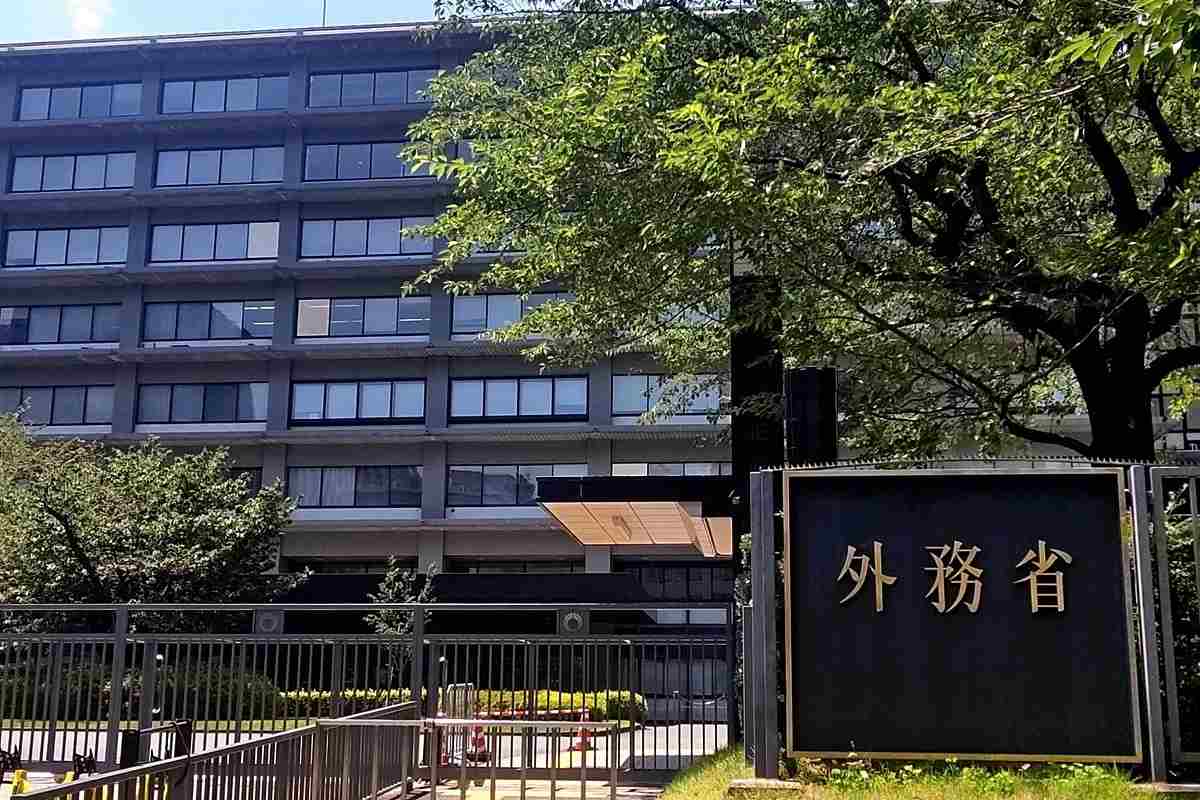Japan Seeks Strategic Use of ODA Program that marks 70th Anniversary; Emphasizes National Benefit, Better Use of Public Funds

The Foreign Ministry in Chiyoda Ward, Tokyo
12:04 JST, June 22, 2024
This year marks the 70th anniversary of the government’s initiation of Official Development Assistance (ODA).
With the international community deeply divided over Russia’s aggression against Ukraine, and other issues, the role of ODA has become increasingly important to the government in strengthening relations with friendly nations. The government is continuing to explore ways to strategically use ODA, including proposing support based on national interests through an “offer-based” approach and incorporating private funding.
“The countries that have received [ODA] support so far are our partners who will shoulder the future of the international community. We need to consider new initiatives for the next phase,” Foreign Minister Yoko Kamikawa said at a press conference in mid-May.
Kamikawa emphasized that ODA has played a role in increasing the number of nations friendly with Japan, primarily among developing countries, and expressed plans to further utilize it to deepen relationships.
A dwindling ODA budget and the resultant urgency to operate it more effectively are behind the government’s push for ODA reform. Japan joined the Colombo Plan, a cooperative framework supporting the development of the Asia-Pacific region, in 1954 and initiated ODA. Bolstered by economic growth, Japan’s ODA expanded in the late 1970s and onwards. By 1989, Japan had surpassed the United States to become the world’s largest donor.
However, the ODA budget has almost halved from its peak of ¥1.169 trillion in fiscal 1997 to about ¥565 billion in fiscal 2024, as the country encountered economic stagnation.
Strict scrutiny of government spending has also been applied to the ODA budget without exception, and cost-effectiveness has become a requirement in ODA.
The revised 2023 Development Cooperation Charter marked a turning point for ODA, as it highlighted a stance prioritizing national interests, such as ODA contributing to Japan’s economic growth.
This initiative has promoted offer-type cooperation, which proposes ODA support menus that leverage Japan’s strengths, provides business opportunities for Japanese companies, and aims to strengthen bilateral relations by addressing challenges in developing countries.
In the summer, the Foreign Ministry plans to establish a new section tentatively called the development cooperation collaboration office within the International Cooperation Bureau to promote the offer-type approach in ODA.
In light of global trends, efforts are being made to strengthen public-private partnerships by attracting private capital. Thanks to the widely recognized Sustainable Development Goals (SDGs) adopted by the United Nations in 2015, private development investments have significantly exceeded ODA in recent years.
“There are development challenges that cannot be met with government funds alone. In the West, the prevailing view is that it is essential to utilize private capital,” said Risako Ishii, an associate professor at Kanagawa University who is an expert in development cooperation with the private sector.
Top Articles in Politics
-

Japan PM Takaichi’s Cabinet Resigns en Masse
-

Sanae Takaichi Elected Prime Minister of Japan; Keeps All Cabinet Appointees from Previous Term
-

Japan’s Govt to Submit Road Map for Growth Strategy in March, PM Takaichi to Announce in Upcoming Policy Speech
-

LDP Wins Historic Landslide Victory
-

LDP Wins Landslide Victory, Secures Single-party Majority; Ruling Coalition with JIP Poised to Secure Over 300 seats (UPDATE 1)
JN ACCESS RANKING
-

Producer Behind Pop Group XG Arrested for Cocaine Possession
-

Japan PM Takaichi’s Cabinet Resigns en Masse
-

Man Infected with Measles Reportedly Dined at Restaurant in Tokyo Station
-

Israeli Ambassador to Japan Speaks about Japan’s Role in the Reconstruction of Gaza
-

Videos Plagiarized, Reposted with False Subtitles Claiming ‘Ryukyu Belongs to China’; Anti-China False Information Also Posted in Japan
























